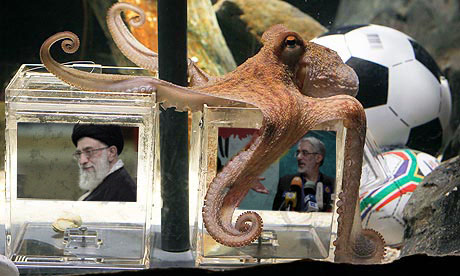 Difficulties for Chinese Economic Policy:
Difficulties for Chinese Economic Policy:Premier Wen Jiabao has warned that
China's macroeconomic policy is facing mounting difficulties with the severity of the international financial crisis and the unpredictable nature of the global recovery.
"China's current economy remains good, but the domestic and international environment is extremely complicated," Wen said while addressing a symposium in Changsha, capital of central China's Hunan Province.
At the symposium, Wen reiterated the government's stance in maintaining the continuity and stability of macroeconomic policies, and making these policies more flexible and targeted.
Wen said the government would "work to promote stable and relatively fast domestic economic growth, restructure the economy and manage inflation expectations to ensure the government's goals for 2010 are met". The government would endeavor to resolve long-term structural problems while targeting urgent issues.
$100 billion for poorer West China: The central government has said it will
invest more than $100 billion in 23 new infrastructure projects in the underdeveloped western regions this year to boost domestic demand.
The plan was announced on Monday after Premier Wen Jiabao said the Chinese economy is facing an "extremely complicated" situation and two purchasing manager surveys showed manufacturing activity had slowed in June.
China has long sought to boost development in the poor western areas. It spent 2.2 trillion yuan ($325 billion) on 120 major projects between 2000 and 2009.
At a conference in Beijing, President Hu Jintao said the western regions should be built within 10 years into the country's bases for energy resources, resource processing, equipment manufacturing and emerging industries of strategic importance.
Chinese steel maker buys rights to mine Australian iron ore: China's third largest steel maker, Wuhan Iron and Steel Corporation (WISCO), completed a joint venture on Wednesday with Australian Centrex Metals Ltd corporation (CXM) to
develop iron ore mines on south Australia's Eyre Peninsula.
WISCO paid 51.5 million Australian dollars (US$43.7 million) to CXM for mineral exploitation rights and another 50 million Australian dollars to the joint venture to cover the cost of the first-phrase exploration, said sources of the central-China-based WISCO.
The joint project, with an estimated investment of US$1.5 billion, is expected to annually produce 33 million tonnes of raw iron ore, along with 10 million tonnes of refined iron ore, the sources said.
With a controlling share of the new joint venture, WISCO would have the final say on the exploration and operation of the Australian iron ore mines.
China steel giant calls for fair market environment in U.S.: China's Anshan Iron and Steel Group Corp. called for
maintainence a fair market environment on Wednesday after 50 US lawmakers sought to block its investment in an American steel company.
In a recent letter to US Treasury Secretary Timothy Geithner, the Congressmen said the joint rebar venture proposed by Anshan Iand US Steel Development Co. threatens "American jobs" and "national security".
In a statement, the steel mill said its investments in the US and other regions were commercial acts based upon market demands and were attempts at international cooperation.
The steel "rebar" produced at the $175 million American facility, in which Anshan Iron and Steel has a 14% stake, would mainly substitute for US imports, it said. Rebar is a low-end steel product mainly used in construction. The 300,000-tonne plant in Amory, Mississippi would create jobs and increase tax revenues and would not harm local suppliers, it said.
Qi Xiangdong, deputy secretary-general of the China Iron and Steel Association, on Monday urged western countries to maintain the proper attitudes towards global trade and economic globalization. "If the (U.S) government supported blocking the deal, it was a protectionist attitude," Qi said.
Overseas grain purchasing agencies covet China's markets: Many of
China's domestic grain purchasing agencies felt slighted by highly capitalized overseas purchasing groups in China's major wheat belts, Xinhuanet.com reported.
Some sources even worried that the groups will affect the central government's regulation of grain price.The foreign groups tempted the Chinese peasants with a higher purchase price which made them store the grain and wait for the better bid.
EU OKs Geely's takeover of Volvo: The European Commission said on Tuesday it
had approved the takeover of Swedish carmaker Volvo by Chinese rival Geely and China's state-owned investment firm Daqing.
"The commission concluded that the transaction would not significantly impede effective competition" in the European Union, the EU's antitrust watchdog said in a statement.
The transaction did not initially qualify for the EU's one-stop shop review because the acquirers did not meet the triggering turnover threshold, but since it was notifiable in at least three EU member states, the parties asked the commission to examine the deal and the countries concerned agreed to it.
Geely signed a deal with Volvo in March, under which Geely would pay $1.8 billion in exchange for the whole shares. Part of the money came from Daqing.
 Sunday, July 11, 2010 at 8:20
Sunday, July 11, 2010 at 8:20  UPDATE 0730 GMT: In case you're wondering --- and I know you are --- Paul has picked Spain to defeat Holland in tonight's final.
UPDATE 0730 GMT: In case you're wondering --- and I know you are --- Paul has picked Spain to defeat Holland in tonight's final.




